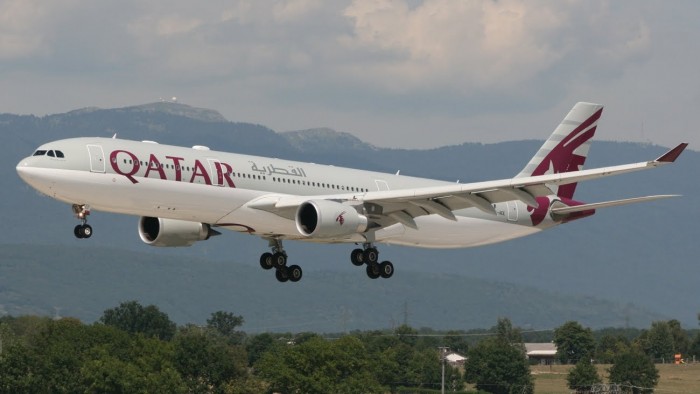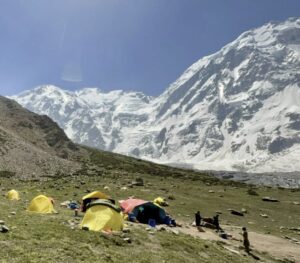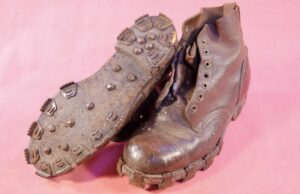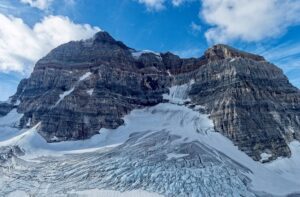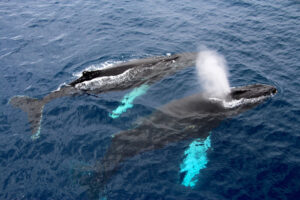For climbers and the few remaining trekkers, fleeing Nepal these days is far from cheap and easy. The lockdown in response to the latest COVID surge is part of the reason. But not the only one.
Currently, no regularly scheduled planes fly into or out of Nepal. Airlines neither offer flights nor allow ticket changes before the end of June. However, the government has allowed a limited number of charters to repatriate foreigners. Some of these work for NGOs, but most of the stranded are climbers — and many of these have just returned from Everest.
Normally, the way to go would be to call a charter airline, and agree on a price based on the number of seats, and hence the size of plane, required. In Nepal this is not possible. The Civil Aviation Authority approves the charters, and everyone must book their tickets and pay through one of two travel agencies licensed by the Nepali government: Megabyte Travels, which operates flights through Turkish Airlines, and President Travels & Tours, which uses Qatar Airways and links Nepal with Doha.
Climbers usually turn to their embassies and consulates to help secure seats, but these too must be purchased directly from those two charter agencies.

Kathmandu’s streets are empty until at least June 14. Shops only open two hours in the morning to sell basic items. Photo: Xinhua
A seller’s market
Nepal and India keep an open “air bubble” with at least one weekly flight between Kathmandu and Delhi. But that is only an option for residents of the two countries.
These two local agencies sell one-way, new tickets, even for those who had booked previous flights with Qatar or Turkish Airlines. As charters, and without competitors, the price is double to triple the cost of the return trip on a two-way ticket.
After consulting with President Travel and Tours, a South African climber bought a ticket to Johannesburg via Doha for $1,645 (a normal ticket is easily available from $700) in a charter plane from Qatar Airways.
As for their unused tickets on the canceled flights, consumers have to deal with the airlines after they return.
“Out of pure desperation and to get my husband home short of being stuck there for a month, we were forced to incur the cost and book the flight,” Ms. Johnson (not real name), the wife of an Everest summiter currently in Kathmandu, told ExplorersWeb.
“Having to fork out an additional $1,645 at the end of the expedition for something you know to be blatant corruption and taking advantage of climbers who are desperate to get home to their families is like having to pay ransom,” Ms. Johnson said. “It leaves an unfortunate last impression of Nepal and Everest.”
Tickets to Europe cost $1,295 and $1700 to $1,800 to the U.S., an outfitter said. “At the agency, there were no economy tickets available, only business class,” a European climber told ExWeb. “I paid €2,400 [$2,910] for a plane back to France.”
Another Everest climber was offered a black-market seat on a plane leaving the next day for $5,000, his guide told ExplorersWeb.
Light at the end of the tunnel?
A Spanish trekker who escaped Nepal on a Turkish Airlines plane two weeks ago told ExplorersWeb that passengers on the plane were mostly Nepalis working abroad. The protests of nationals needing to work (mainly in the Middle East) made Nepal authorities allow some weekly flights to Turkey and Doha, starting this week, The Kathmandu Post reported.
They distributed the following note among foreigners hoping to leave the country soon. However, the process of purchasing tickets has not changed. At time of publication, fares have not decreased. ExplorersWeb has contacted the travel agencies for further information.

Climbers and expedition outfitters fear that the waiting time may increase after nearly 200 climbers left the mountain in the last few days. Meanwhile, they must remain in their hotels, since COVID numbers are still extremely high in Kathmandu. The town has just extended its lockdown until June 14.
“If required we’ll allow more charter flights,” Raj Kumar Chettri, a spokesman for the Civil Aviation Authority of Nepal (CAAN), told Reuters.
Everest has forced climbers to use both patience and a significant amount of money. Now, they will have to use more of both. Or, as Marek Holecek waggishly suggested, “walk back home.”
